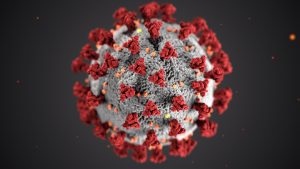Those released from incarceration to a stable home are no less likely to respect public health guidelines than those who have never been in a prison or jail.
The ongoing worldwide pandemic of COVID-19 has sent shockwaves throughout the entire world. From affecting economies to affecting medical and educational systems, and leading to the death of thousands of people, the COVID-19 pandemic is already becoming overwhelming, both at personal and collective spheres.
The new infectious disease caused by severe acute respiratory syndrome coronavirus 2 was first confirmed to have reached the U.S. in January this year. Since then, the situation has wreaked havoc across the nation, including the federal prison system.
According to the Bureau of Prisons, at least 138 inmates and 59 members of staff have tested positive for the new coronavirus in all 122 institutions across the country [at the time of writing]. The hardest hit in the nationwide system and the most complex situation is in Louisiana, at the Oakdale federal prison.
The situation at the Oakdale federal correctional institution
Oakdale was the first federal prison to report fatalities from the new coronavirus situation, and, so far, five inmates have died after contracting the virus [at time of writing]. The low-security facility holds about 980 inmates, from which, eighteen inmates have already been infected with the new coronavirus. Apart from that, 17 staff members also now have COVID-19, and dozens more of both inmates and staff members are isolation with symptoms. [All numbers involving infected parties and deaths were correct at the time of writing, but may have increased.]
U.S. jails and prisons are potential hothouses for infection
Oakdale isn’t the only prison hard-hit by COVID-19. Butner, located in North Carolina, has nine inmates who have contracted the virus. The low-security prison located in Danbury, Connecticut also has nine inmates sick with coronavirus. So, it is becoming evident that Oakdale was just the first prison to deal with this situation, but now the problem is spreading to the nationwide system.

It’s pretty obvious why the authorities need to take some drastic measures to protect both the inmates and the staff members from getting sick. Inmates live in close quarters, they share bathrooms and dining halls, and they often have limited access to health care. Moreover, they are in contact with staff members, who may bring the virus from outside, every day. Yet, U.S. prosecutors don’t seem to take the calls to free inmates seriously.
Prison authorities are asking for solutions
Now, the U.S. Justice Department, which controls the nation’s largest prison system, refuses to free inmates as they consider that the concerns that exist are only based on speculation and generalized fear. But this isn’t the case just for the Oakdale federal prison. Prosecutors have been making similar arguments in federal courts across the entire nation, according to interviews with attorneys, legal advocates, and the relatives of inmates.
While the DOJ doesn’t seem to take coronavirus-related releases from federal facilities seriously, some prison authorities in states from New York to California are rushing to release non-violent inmates, elderly offenders, and those criminals that are medically high-risk.
Federal prosecutors actually believe that those inmates with pre-existing medical conditions are safer in prison than at home. And, they are also reporting being skeptical about claims of coronavirus-related illness among inmates.
Obviously, prison authorities aren’t the only ones asking for solutions. Fearful of spread, inmates across the country have also started to ask the courts to set them free. While some are asking for their sentences to be shortened, others ask to be freed on bond, and, those who are elderly, sick, or terminally ill, ask for a compassionate release. Unsurprisingly, federal prosecutors have expressed their opposition regarding all these requests, once again arguing that inmates might be safer in prison than outside.
Now, it is evident that detainees should not be released without somewhere to go, which might be a problem in that not all shelters are prepared to provide proper living conditions. However, those released from incarceration to a stable home are no less likely to respect public health guidelines than those who have never been in a prison or jail.


Join the conversation!